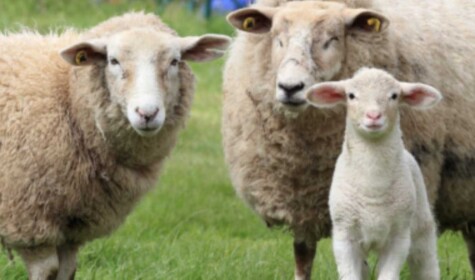A coalition of agroecological and regenerative farming and conservation organisations [1] are calling on leaders to be bold on sustainable agriculture in tackling the climate and nature emergency at COP26 in Glasgow.
The coalition is pleased to see the Government publish its Net Zero Strategy this week. There are certainly many elements that are welcome, particularly around agroforestry and peatland restoration, as well as a focus on the need to curtail excess nitrogen from slurry and synthetic fertilisers.
However, the Strategy failed to recognise the power of agroecology to help reduce emissions and the value of species-rich grasslands as a nature-based solution. Whilst a step in the right direction, the strategy lacks ambition and vague statements on emerging technology take priority over concrete commitments.
The Government’s Net Zero Strategy echoed the Climate Change Committee’s recommendations for land use outlined in their 6th Carbon Budget. Both documents demonstrate siloed thinking that could be detrimental to nature’s recovery and the transition to sustainable farming.
The coalition’s briefing outlines how farming and land use can deliver for climate, nature and public health, while still providing food security through the wider adoption of agroecology and regenerative farming.
The group is calling on the UK Government to take an integrated and holistic approach to land use and food production, and place resilience at the heart of future policy.
They recommend that:
- Climate change mitigation should not be pursued at the cost of biodiversity, food security or climate resilience. Instead, an integrated approach to these issues needs to be seen as interconnected.
- Carbon offsetting measures (such as afforestation or bioenergy) need to be balanced with biodiversity targets and consider the carbon potential of well-managed soils, species-diverse grasslands and agroforestry.
- Diet change is crucial but should be guided by what we can produce sustainably, with a greater understanding of the impacts of different production systems, including more accurate measurement of GHG emissions from agriculture and mandatory method of production labelling that would empower consumers to make informed decisions.
These must be fully adopted in the Government’s strategy to meet the UK’s GHG emission reduction targets within the farming and land use sector. Governments should ensure that the design of future support schemes for the farming sector embrace a truly sustainable vision for farming and support the transition to agroecology.
Click here for full briefing.
For more information, please contact:
Honor Eldridge, project coordinator
07901134413
Honor.eldridge@plantlife.org.uk
Notes
1. The coalition members include: Sustain: The Alliance for Better Food, Sustainable Food Trust, Soil Association, Floodplain Meadows Partnership, Pasture-Fed Livestock Association.


